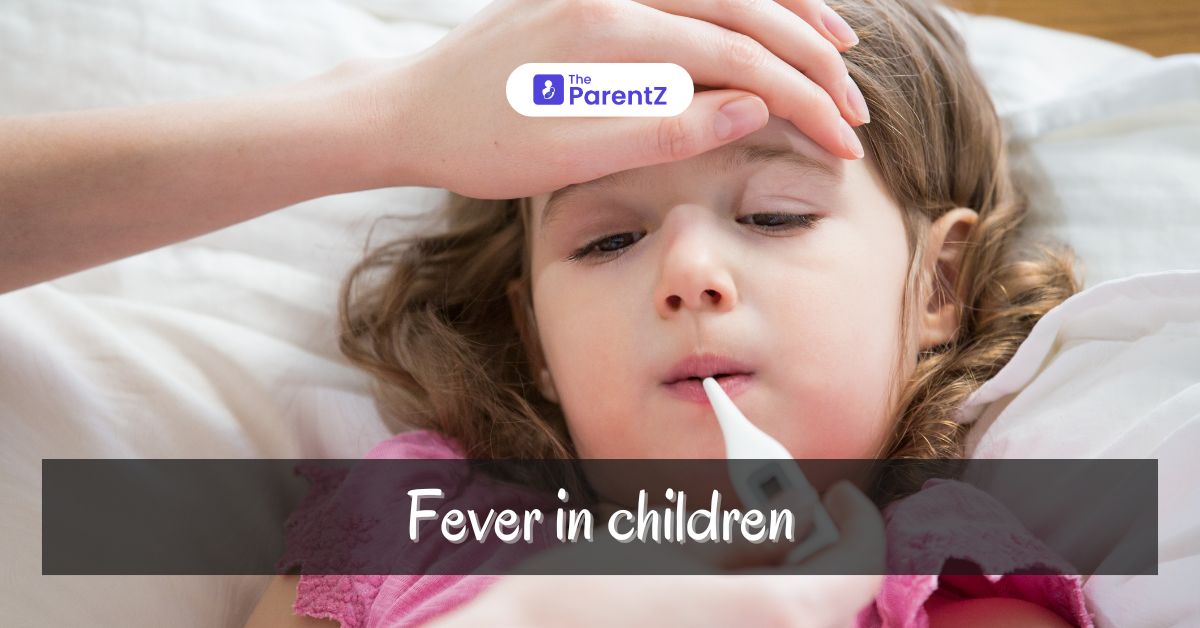What is fever?
Fever means that the body temperature is higher than the normal which is 100 degree Fahrenheit or 38 degree Celsius. Temperature is generally measured with a digital thermometer and there are different sites of the body for measurement of temperature which include the axilla, under the tongue, rectal and the forehead. Depending on the site, the temperature may vary slightly by 0.5 to 1 degree Celsius. Fever can be caused by a lot of reasons including infections and vaccinations.Having a fever does not mean that your child is in danger. Fever is a normal and the healthy response of a body to fight against infections.
Are there any normal causes of fever?
Fever can have a lot of causes which are not dangerous for the child. This includes:
- Fever developing post vaccination.
- A slight variation in the temperature of the child from day to night is normal and should not be confused with the fever.
- Over dressing a child can lead to them having a higher temperature.
- A child who is teething can also have a slightly raised body temperature.
How can I care for my baby who has fever at home?
A fever should usually resolve by 4 to 5 days. In the meantime, you can care for your child at home in the following ways:
- Give your child plenty of fluids to drink.
- If your baby has a fever who is being breastfeed continue breastfeeding as normal.
- Look out for signs of dehydration in the child.
- Do not restrict food. If your child feels hungry, let them eat as they normally would.
- Do not sponge the child to bring down the fever as it is a normal response of the body.
- Do not overdress the child or cover them up with too many clothes.
- You can give ibuprofen or paracetamol to your child but only after making sure that it is appropriate for the age.
- Do not give Aspirin to a child under 16 years of age.
- Do not give paracetamol to a child under 2 months of age.
- Do not give ibuprofen to a child under 3 months of age or a child who has chicken pox or is under 5 kgs or is dehydrated .
- Do not give ibuprofen to a child who has asthma.
- Do not combine ibuprofen and paracetamol unless it is advised by your doctor.
- If the fever does not subside even after 4 to 5 days or you observe danger signs in your child, consult a doctor immediately.
When should I consult a doctor?
There are some cases when a fever may be dangerous for your child or an indication of a serious disease. In such cases you need to consult a doctor immediately. Consult your doctor if:
- A child under three months of age has a temperature of 38 degree Celsius or higher
- A child between 3 to 6 months of age has a temperature of 39 degree Celsius or higher.
- The child has a fever which lasts for more than 5 days.
- There are other symptoms such as rash along with the fever.
- The child is not eating well and appears to be lethargic.
- The child is dehydrated such as they have sunken eyes, nappies are not wet or there are no tears when crying.
According to NCBI, the normal body temperature in a child is between 36.5°C to 37.5°C. This varies around 0.5°C for morning and evening. Temperatures up to 38.5°C are referred to as elevated body temperature. The cutoff of fever varies according to the age of a child. The cutoff as given by the NCBI are:
| Age of child | Fever °C | Fever °F |
|---|---|---|
| <3 months | 38 | 100.4 |
| >3 months | 38.5 | 101.3 |
When should I call emergency service?
A fever can be a sign of severe underline conditions. If not treated properly or ignored, it can be a very dangerous situation. You might need to call emergency services if:
- Your child has a stiff neck.
- Your child is bothered by the light.
- The child is very drowsy and you are unable to wake them up.
- The child is extremely agitated or confused.
- The child has unusually cold hand or feet.
- The skin of the child changes colour to blue, pale or blotchy.
- The child has a fit or a seizure which does not stop.
- The child has difficulty breathing or is breathing very fast.








Be the first one to comment on this story.